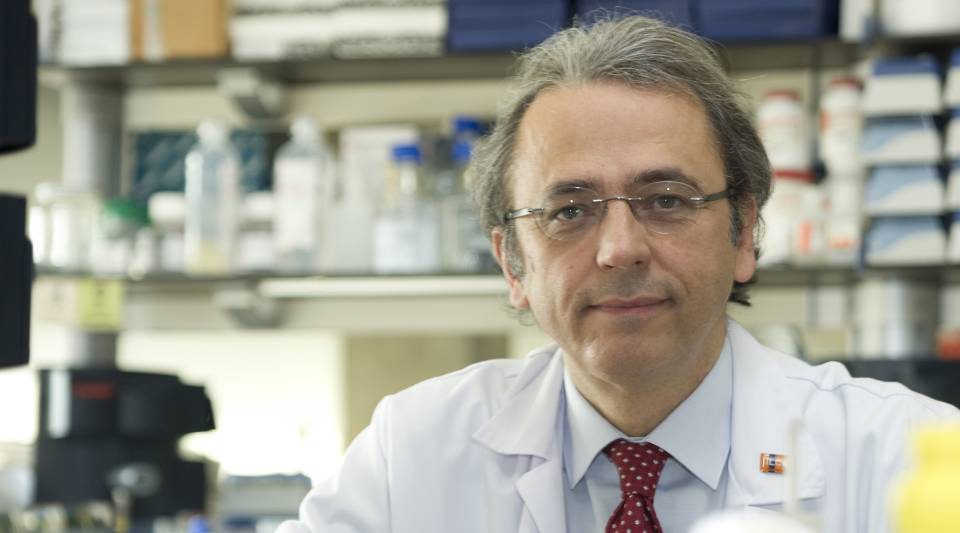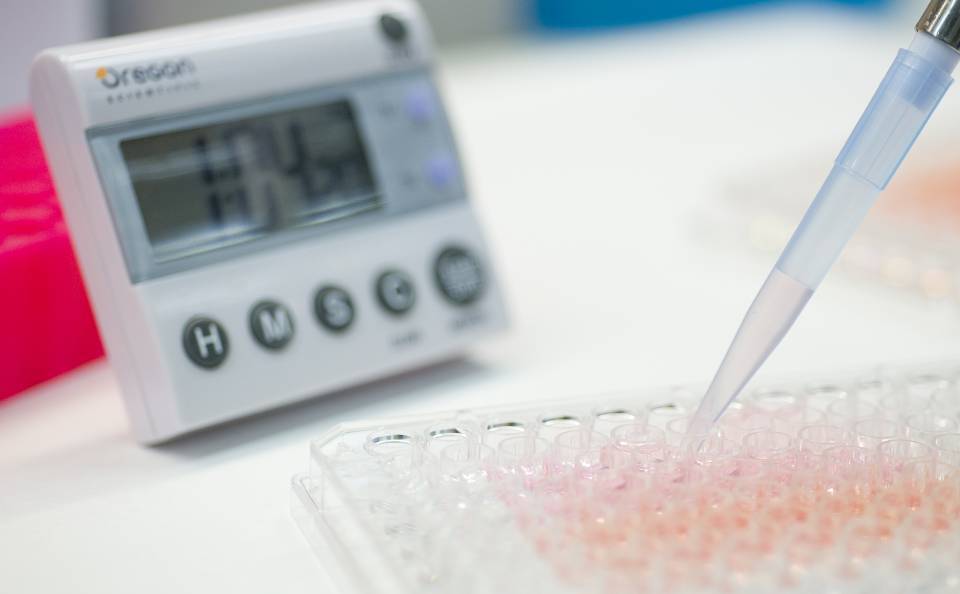Researchers at Clínic-IDIBAPS, led by Josep M. Llovet, head of the Translational research in hepatic oncology group, Full Professor of Medicine and Director of the Liver Cancer Programme at the Mount Sinai School of Medicine, New York University, have identified 11 genes that make it possible to determine patients with intermediate or advanced stage liver cancer that will respond to treatment with immunotherapy using a PD1 receptor inhibitor. The magazine Gastroenterology has published the findings from the study.
“The PD1 receptor belongs to a family of proteins that modulates the activity of the immune system's T-cells and prevents them from attacking the body's healthy cells. However, certain tumours also express these proteins, which protects them from the action of T-cells”, says Llovet. “Immune checkpoint inhibitor drugs have revolutionised cancer treatment, but in advanced liver tumours only 15-20% of patients treated show a significant reduction in tumour size”.
The molecular mechanisms that determine the response or resistance to treatment are unknown. That is why the research team analysed the genome of 111 samples of hepatocellular carcinoma obtained before PD1 inhibitor treatment via an international consortium of 20 centres in the United States and Europe. Radiological assessment of the response to treatment was performed two to three months after drugs were administered. “Comparing the two groups of data enabled us to describe the IFNAP genetic signature, which comprises 11 genes involved in the signalling cascade of interferon, a pro-inflammatory molecule, and the antigen presentation process of the immune system,” says Llovet. “According to our results, the expression of these 11 genes is linked to an improved response to treatment, as well as increased survival. More specifically, patients have a median survival time of more than 36 months compared to the 19 months with standard treatment expected at this stage”.
Moreover, in a cohort of 240 patients, the researcher, and his team, observed that the IFNAP signature also discriminates tumours sensitive to PD1 inhibitor drugs in other types of solid cancers. “The next step is to validate the results of the study in a large group of patients, as this is key to advancing towards precision medicine and the approval of cost-effective therapies. This is why we are currently engaged on collecting new samples”, concludes Josep M Llovet.
Reference article
Haber PK, Castet F, Torres-Martín M, Andreu-Oller C, Puigvehí M, Maeda M, Radu P, Dufour JF, Verslype C, Czauderna C, Marquardt JU, Galle PR, Vogel A, Bathon M, Meyer T, Labgaa I, Digklia A, Roberts LR, Mohamed Ali MA, Mínguez B, Citterio D, Mazzaferro V, Finkelmeier F, Trojan J, Özdirik B, Müller T, Schmelzle M, Bejjani A, Sung MW, Schwartz ME, Finn RS, Thung S, Villanueva A, Sia D, Llovet JM. Molecular markers of response to anti-PD1 therapy in advanced hepatocellular carcinoma. Gastroenterology. 2022 Sept 12:S0016-5085(22)01039-3.




